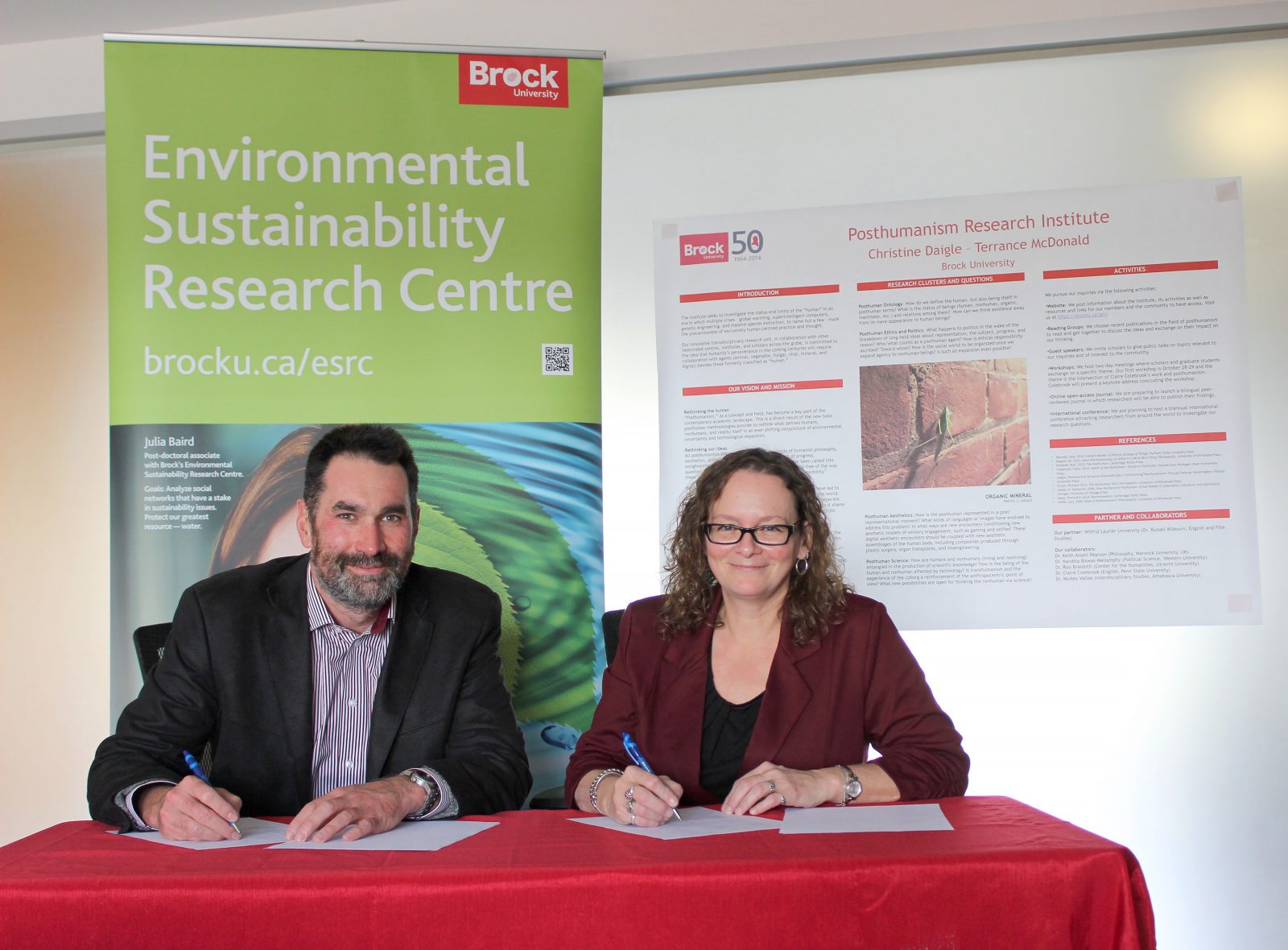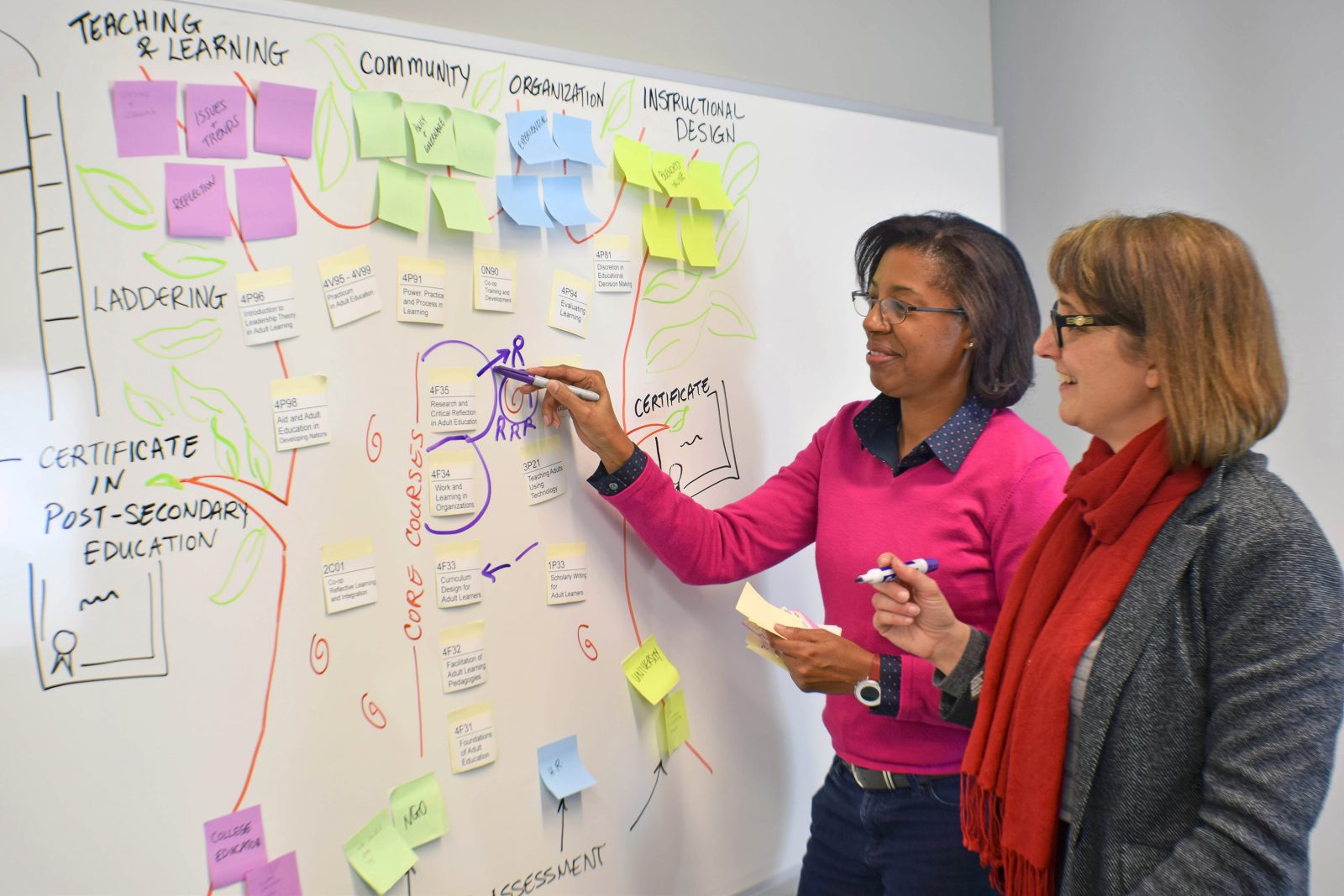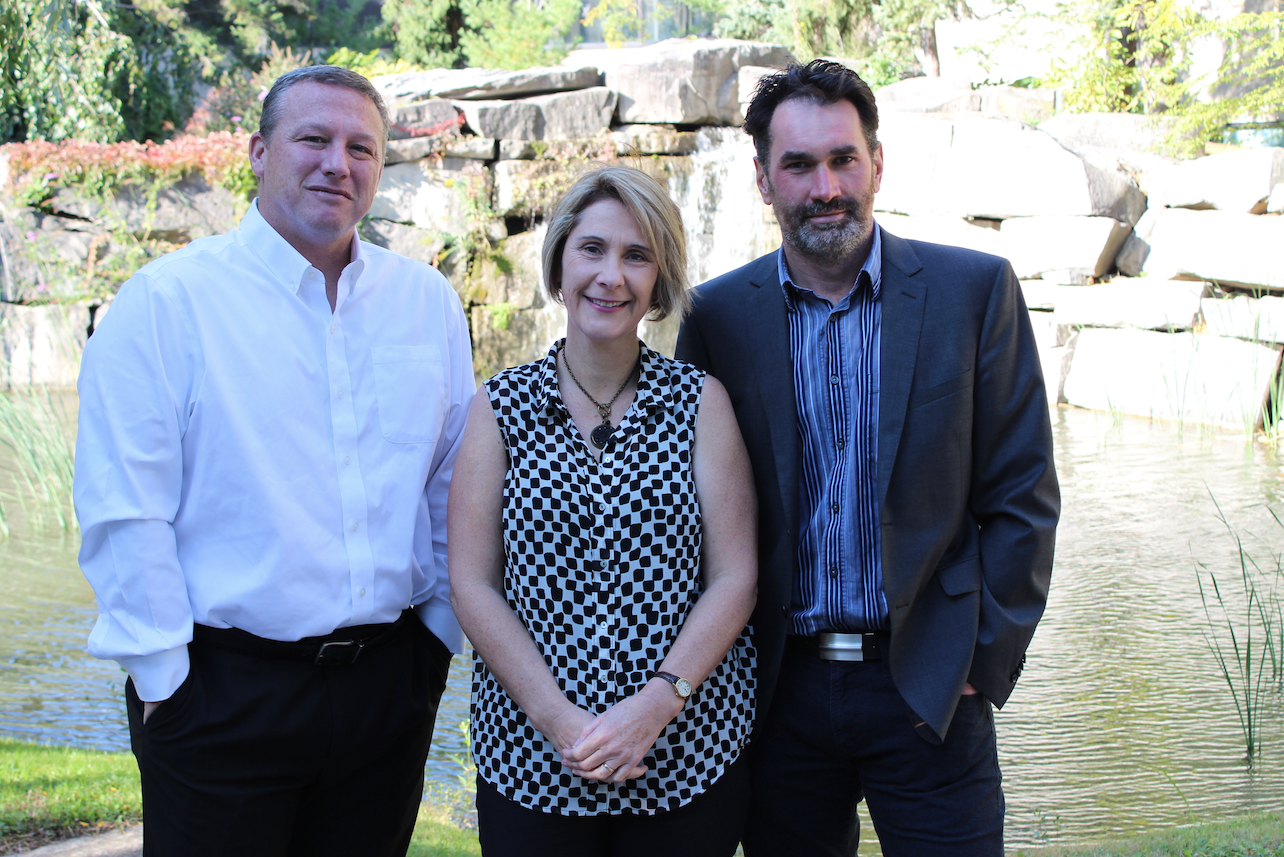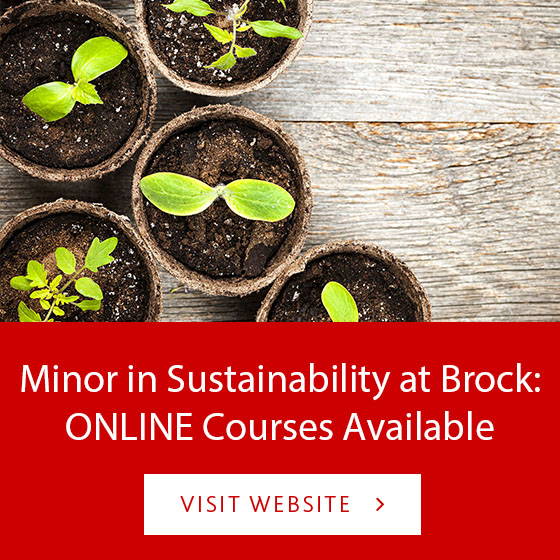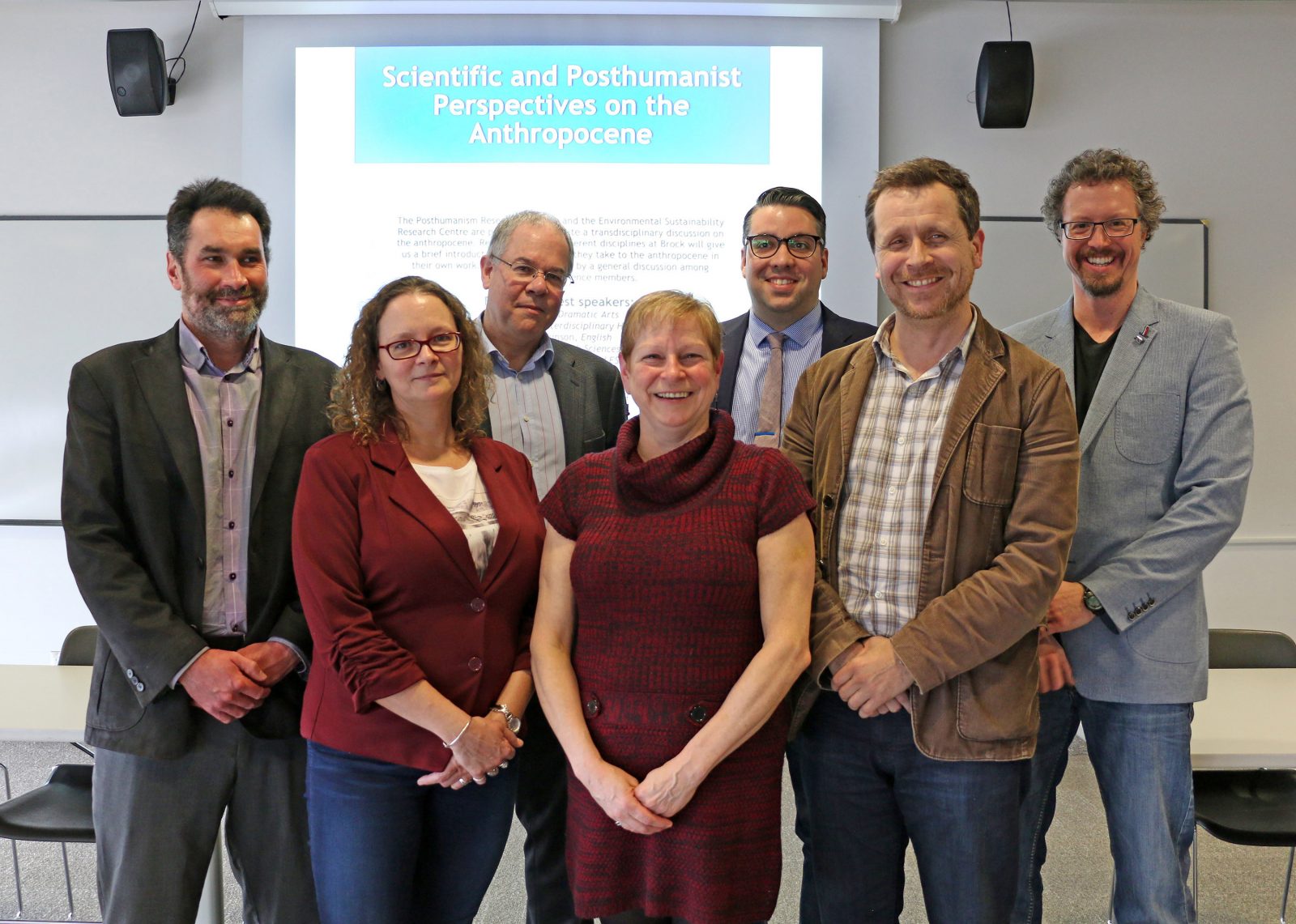 Ryan Plummer, Director of Brock’s Environmental Sustainability Research Centre and Christine Daigle, Director of Brock’s Posthumanism Research Institute, co-hosted a forum on Monday, March 27 featuring presentations by professors Martin Head (Earth Sciences), Liette Vasseur (Biological Sciences), Terrance McDonald (Interdisciplinary Humanities), David Fancy (Dramatic Arts) and Adam Dickinson (English Language and Literature).
Ryan Plummer, Director of Brock’s Environmental Sustainability Research Centre and Christine Daigle, Director of Brock’s Posthumanism Research Institute, co-hosted a forum on Monday, March 27 featuring presentations by professors Martin Head (Earth Sciences), Liette Vasseur (Biological Sciences), Terrance McDonald (Interdisciplinary Humanities), David Fancy (Dramatic Arts) and Adam Dickinson (English Language and Literature).Changes to the environment and what it means for the future prompted discussion between scholars from several Brock University disciplines during a recent forum.
Scientific and Posthumanist Perspectives on the Anthropocene invited five Brock speakers together for an afternoon of transdisciplinary discussion on Monday, March 27.
The term anthropocene was unveiled in 2000 to represent a new unit of geological time in which human activities have finally overwhelmed the planet as an operating system.
The forum “started a conversation among researchers at Brock interested in this seminal time period and the myriad of ways it is being studied,” said Ryan Plummer, Director of Brock’s Environmental Sustainability Research Centre (ESRC), who co-hosted the event alongside Christine Daigle, Director of Brock’s Posthumanism Research Institute (PRI).
The event, which focused on how changes to the planet impact humans and other beings, was the first collaboration between the ESRC and PRI. The two research centres signed a memorandum of understanding in February, committing to pursuing joint research projects, workshops and conferences.
Scholarly discourse across disciplines is “where exciting breakthroughs occur,” Plummer said. “With respect to our planetary future, there can be no more important issue for engagement.”
The event featured professors David Fancy (Dramatic Arts), Terrance McDonald (Interdisciplinary Humanities), Adam Dickinson (English Language and Literature), Martin Head (Earth Sciences), and Liette Vasseur (Biological Sciences).
It was an opportunity to not only engage in discussion with scholars from three of Brock’s academic Faculties, but to also take in a diverse range of perspectives on the topic, Plummer said.
Fancy was intrigued by how people from different backgrounds at the University approached the question of how humans are affecting the environment and what can be done to develop different relationships with the planet.
Vasseur felt the discussion helped with efforts to try and define what anthropocene means for different disciplines and how it can be interpreted.
With a successful first discussion on the topic, there’s potential the group will return to the table in the future to continue its dialogue.
Story from The Brock News
